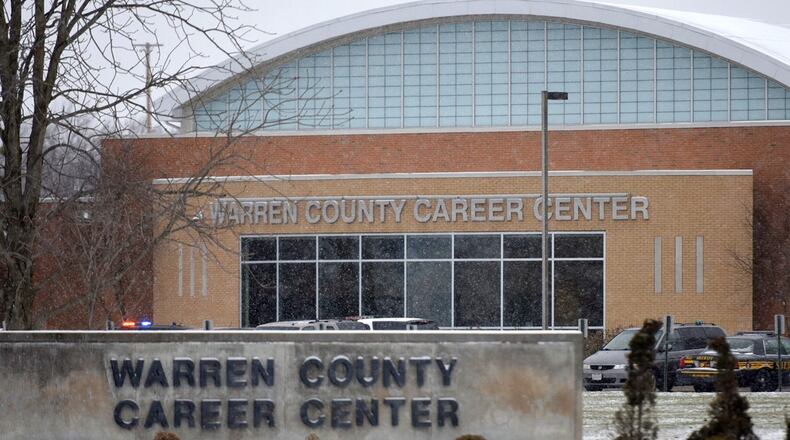The entire construction project will cost about $88.9 million, with the Ohio Facilities Construction Commission, which provides state dollars to build new government buildings, providing about $21.7 million, or about 24%.
Joel King, the superintendent for the WCCC, said more than 800 students applied for the career center for the 2023-2024 school year, but only 534 spots were available due to space restrictions.
“Our number of applications has been growing over the last five to seven years,” King said. “We are hoping to add at least three new programs that would be finalized with input from the community and business partners in Warren County. "
Students from Franklin, Kings, Lebanon, Little Miami, Springboro, Waynesville and Fenwick high schools attend the Warren County Career Center. Only voters in those school districts will vote on the levy.
The new school building would be built on the same land as the current WCC, and the current building would become an adult education facility.
Seven adult programs are currently offered at WCCC, including dental hygienist, pharmacy technician, fire and emergency services, cosmetology and more.
There are 20 programs currently offered for high school students including pre-nursing, HVAC, veterinary science, fire science and EMS, criminal justice, and automotive trades.
King said as the education facility adds more programs, the WCC plans to work with business advisory members to find instructors for the new programs. Schools have said they are struggling to find teachers in recent years, but career centers say it can be particularly hard to find teachers for some classes, particularly nursing.
Miami Valley Career Tech Center closed a licensed practical nurse program and a registered nurse program in November and cited financial constraints and difficulty in finding teachers.
King said there is pending legislation that could also help the district find the right teachers more easily.
“This would certainly help ensure that we have quality instructors to offer programs for high-wage and in-demand jobs that students can pursue after graduation,” King said of the expansion.
About the Author

